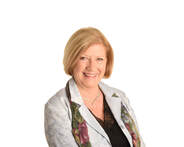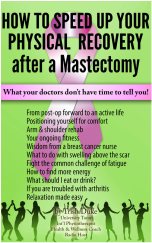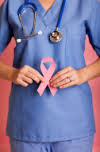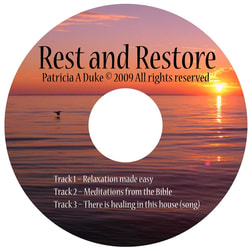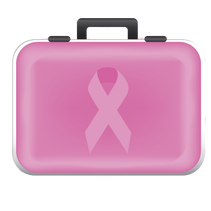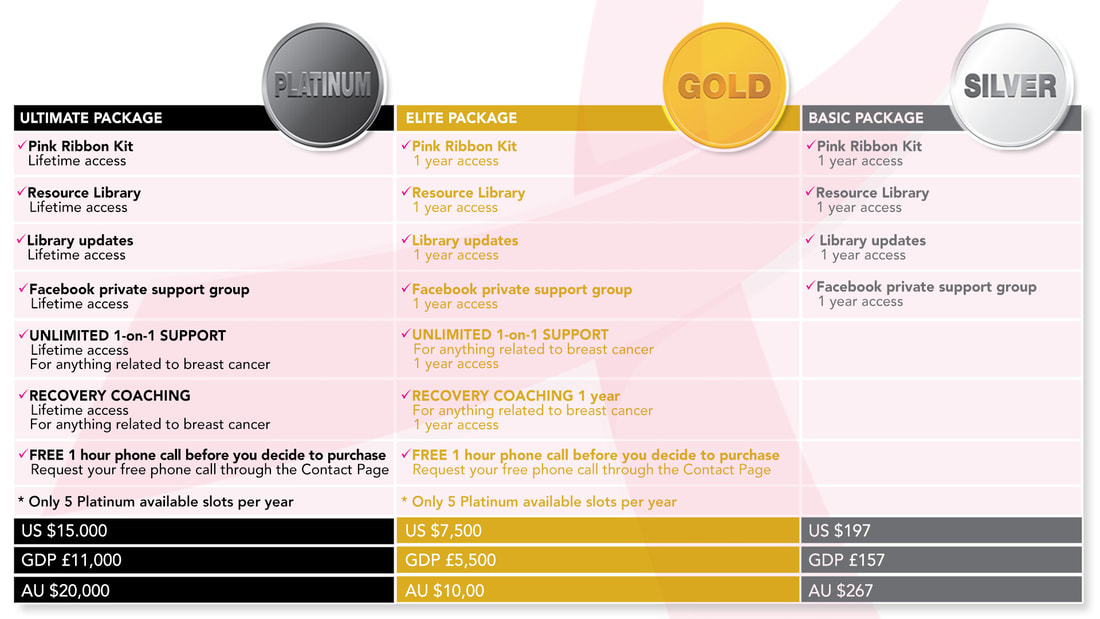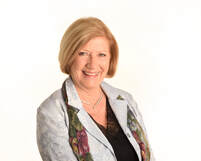How to overcome the common physical challenges after a mastectomy
and breast cancer surgery
Having breast cancer can feel like you are in a Medical Olympic Games and competing in every event!
There are challenges to overcome physically, emotionally, sexually, what to wear, self-esteem, returning to work…and so on. Some challenges are easier than others.
On this page we are talking about physical challenges you may face such as:
There are challenges to overcome physically, emotionally, sexually, what to wear, self-esteem, returning to work…and so on. Some challenges are easier than others.
On this page we are talking about physical challenges you may face such as:
- Anaesthetic recovery
- Pain
- Swelling
- Insomnia
- Scars
- Loss of a breast
- Body image
- Fatigue
- Functional use of the arm adjacent to the surgery
- Regaining fitness
- Inability to work
- Lifting
- Lymphedema
- Malnutrition
For most ladies, breast cancer is more like a marathon of ongoing challenges.
Each lap has it's own challenges, milestones and celebrations!
Hi, I’m Trish Duke, an international Physical Therapist (with 40+ years of clinical experience working in 5 different countries) I have treated many, many ladies with breast cancer. (About Trish)
Initially, my professional focus was to help ladies to deal with post-operative swelling and pain. Then teach a program of gently progressive exercises and stretches to regain movement and strength in the arm on the same side as the surgery.
Many ladies were not able to follow the exercise sheet they had been given resulting in poor functional use of the arm and shoulder next to the surgery. Unfortunately, they just accepted that thinking “at least I don’t have the cancer any more”.
Initially, my professional focus was to help ladies to deal with post-operative swelling and pain. Then teach a program of gently progressive exercises and stretches to regain movement and strength in the arm on the same side as the surgery.
Many ladies were not able to follow the exercise sheet they had been given resulting in poor functional use of the arm and shoulder next to the surgery. Unfortunately, they just accepted that thinking “at least I don’t have the cancer any more”.
Down the track I met some of these ladies, as well as others who had not been my patients immediately after cancer surgery. Some of them presented with the usual Physiotherapy ailments, but others came with lymphedema or aches and pains that were linked to their physical and emotional challenges lingering after the breast cancer.
They were often angry about the lymphedema as they had not been informed adequately by the doctors (who were often too busy or thought it better not to worry them).
Truth is that if they had been educated on the common issues, they would have been able to minimise the problems or caught them earlier.
Looking again at the list of common physical challenges from just after surgery, during other treatments and then months after “it’s all over”…wouldn't it be better to get some expert help instead of struggling to overcome challenges on your own?
To help you to make the best recovery possible I developed the Pink Ribbon Kit including the Resource Library with links to the major international breast cancer organisations, e-Books, videos, radio interviews, MP3's, PDF's, reports etc. and a private FB support group.
Scroll down to read more…
They were often angry about the lymphedema as they had not been informed adequately by the doctors (who were often too busy or thought it better not to worry them).
Truth is that if they had been educated on the common issues, they would have been able to minimise the problems or caught them earlier.
Looking again at the list of common physical challenges from just after surgery, during other treatments and then months after “it’s all over”…wouldn't it be better to get some expert help instead of struggling to overcome challenges on your own?
To help you to make the best recovery possible I developed the Pink Ribbon Kit including the Resource Library with links to the major international breast cancer organisations, e-Books, videos, radio interviews, MP3's, PDF's, reports etc. and a private FB support group.
Scroll down to read more…
Resources in our library to help with the physical recovery
during and after breast cancer
“Mastectomy Recovery” is a series of 7 best-selling eBook series on Amazon.com
(authored by Trish Duke)
Resource # 1 is one of the e-books in the series
"How to Speed up your Physical Recovery after a Mastectomy”
Table of contents
(authored by Trish Duke)
Resource # 1 is one of the e-books in the series
"How to Speed up your Physical Recovery after a Mastectomy”
Table of contents
- From post-op forward to an active life
- Positioning yourself for comfort
- Arm & shoulder rehab
- Your ongoing fitness
- Wisdom from a breast cancer nurse
- What to do with swelling above the scar
- Fight the common challenge of fatigue
- How to find more energy
- What should I eat or drink?
- If you are troubled with arthritis
- Stress management.
- Relaxation made easy
Resource # 2
"Mastectomy Recovery. Jan’s Story” video teaches:
For anyone facing breast cancer surgery this video is a timeless, valuable resource as many patients are sent home after breast cancer surgery without a clear plan of the rehab exercises, activities allowed, lymphedema prevention, body image adjustment or emotional support.
You will be inspired as you watch Jan speedily recovering from mastectomy and reconstruction surgery for breast cancer. Follow her physical and emotional progress using this safe and trusted home exercise plan from her first day home post-op to playing golf a few weeks later….bald as an egg and still having chemotherapy. (Watch her testimony from the golf course)
"Mastectomy Recovery. Jan’s Story” video teaches:
- The easy-to-follow exercise program that has been used internationally for decades promoting recovery of the shoulder and arm adjacent to your surgery.
- How to avoid or minimize lymphedema.
- A self-help program if arm swelling develops.
For anyone facing breast cancer surgery this video is a timeless, valuable resource as many patients are sent home after breast cancer surgery without a clear plan of the rehab exercises, activities allowed, lymphedema prevention, body image adjustment or emotional support.
You will be inspired as you watch Jan speedily recovering from mastectomy and reconstruction surgery for breast cancer. Follow her physical and emotional progress using this safe and trusted home exercise plan from her first day home post-op to playing golf a few weeks later….bald as an egg and still having chemotherapy. (Watch her testimony from the golf course)
Resource # 3
A radio interview with a Breast Cancer Nurse
“How a Mastectomy Affects a Woman and Her World”
Four exclusive radio Interviews...
Interview # 3
A radio interview with a Breast Cancer Nurse
“How a Mastectomy Affects a Woman and Her World”
Four exclusive radio Interviews...
Interview # 3
- Having fun after a mastectomy
- Activities and sports
- Regaining you physical fitness and emotional confidence
- Swimwear and sport bras
Resource # 4
“50 Ways to Feel Better with Cancer & Chronic Diseases” video
Benefit from this empowering self-help video that gives you a ‘toolbox’ of practical, holistic solutions to maintain your comfort, dignity, mobility and independence.
People who are physically challenged already from other diseases, lack of fitness, obesity or just plain hate even the word ‘exercise’ will find this video helpful to find enjoyable activities.
Most patients battling Cancer or chronic disease would find solutions to common challenges they face on a daily basis in this valuable resource.
The successful D.E.E.P. program (Duke Energizing Exercise Program) was written by Trish Duke for university research to combat rest-resistant fatigue. Fatigue is the number one symptom that sufferers of cancer complain of most. People with chronic diseases also complain that no matter how much rest they have, they are still tired and short of energy.
Contents of the video:
“50 Ways to Feel Better with Cancer & Chronic Diseases” video
Benefit from this empowering self-help video that gives you a ‘toolbox’ of practical, holistic solutions to maintain your comfort, dignity, mobility and independence.
People who are physically challenged already from other diseases, lack of fitness, obesity or just plain hate even the word ‘exercise’ will find this video helpful to find enjoyable activities.
Most patients battling Cancer or chronic disease would find solutions to common challenges they face on a daily basis in this valuable resource.
The successful D.E.E.P. program (Duke Energizing Exercise Program) was written by Trish Duke for university research to combat rest-resistant fatigue. Fatigue is the number one symptom that sufferers of cancer complain of most. People with chronic diseases also complain that no matter how much rest they have, they are still tired and short of energy.
Contents of the video:
- D.E.E.P. Program. How to find your ‘get up and go’ when it has ‘got up and gone’
- How to gain more energy
- Stress management
- Easy relaxation to music and Australian scenery
- Making the most of every day
- How to give a relaxing massage
- Coping with swollen limbs
- Helpful equipment to buy or hire from your Pharmacy store
Resource # 5 “Rest & Restore” MP3
How to rest your body and mind
Restore inner peace and energy
Simple relaxation techniques and meditations
Easy relaxation set to music
Meditations to comfort and inspire you from the Bible
A healing song
How to rest your body and mind
Restore inner peace and energy
Simple relaxation techniques and meditations
Easy relaxation set to music
Meditations to comfort and inspire you from the Bible
A healing song
Up to 80% of cancer patients suffer malnutrition
due to side effects of the treatments
If you are nauseous or have a dry mouth etc for periods of time and don't want to eat, then you lose muscle strength and energy quickly.
That slows up your recovery generally.
An enterprising breast cancer patient experimented with foods she could digest and keep her self nourished during the treatment phase.
You can benefit by her expertise and research with her videos and books of easy recipes and tips of what and when to eat.
We link you up through the Resource Library.
That slows up your recovery generally.
An enterprising breast cancer patient experimented with foods she could digest and keep her self nourished during the treatment phase.
You can benefit by her expertise and research with her videos and books of easy recipes and tips of what and when to eat.
We link you up through the Resource Library.
Pink Ribbon Kit
The above resources are a small part of the Resource Library included in the Pink Ribbon Kit
The 'Pink Ribbon Kit' aims to help YOU to tackle the unexpected challenges that most patients face throughout their breast cancer journey ... and for months after treatments are completed.
The Kit is available to you as a lifetime resource and designed to assist you from diagnosis to the point when breast cancer is no longer an issue in your life.
The ‘long shadow’ after breast cancer can include lymphedema, body image and sexual issues, mild depression, changed relationships.
KNOWLEDGE IS POWER
The Pink Ribbon Kit includes:
The Resource Library has links to the best international breast cancer websites and unique multi-media resources … saving you time (and stress) instead of frantically searching on the internet for answers to questions you were not expecting to ask!
Learn from international health professionals and breast cancer survivors using the compendium of videos,radio interviews, e-books, audio, research articles and TV programs etc.
Coupled with the FB support group, you will have tools 24/7 to dip into before or during a challenge. You (the patient) can invite a loved one or personal VIP into the FB group. They often need as much support as yourself.
Contributors to the Pink Ribbon Resource Library:
Click here to check out the contents of the Resource Library
Click here to obtain your lifetime Pink Ribbon Kit
The Kit is available to you as a lifetime resource and designed to assist you from diagnosis to the point when breast cancer is no longer an issue in your life.
The ‘long shadow’ after breast cancer can include lymphedema, body image and sexual issues, mild depression, changed relationships.
KNOWLEDGE IS POWER
The Pink Ribbon Kit includes:
- A comprehensive, multi-media Resource Library with practical tips and solutions to speed up your recovery …physically, emotionally and sexually.
- A private Facebook group focused on being supportive, helpful and positive!
- Make new friends in the FB group who 'get' where you are at this point in your life.
- Prayer support is offered.
- You have an option to invest in yourself with ‘one-on-one’ support.
The Resource Library has links to the best international breast cancer websites and unique multi-media resources … saving you time (and stress) instead of frantically searching on the internet for answers to questions you were not expecting to ask!
Learn from international health professionals and breast cancer survivors using the compendium of videos,radio interviews, e-books, audio, research articles and TV programs etc.
Coupled with the FB support group, you will have tools 24/7 to dip into before or during a challenge. You (the patient) can invite a loved one or personal VIP into the FB group. They often need as much support as yourself.
Contributors to the Pink Ribbon Resource Library:
- Breast cancer surgeon
- Family Doctors
- Breast Cancer Nurse
- Senior breast cancer Physiotherapist
- Breast cancer survivors and their loved ones
- Best-selling authors on Amazon.com
- Award-winning documentary maker
- Ongoing new contributors and resources
Click here to check out the contents of the Resource Library
Click here to obtain your lifetime Pink Ribbon Kit
You are very welcome to join our international
mastectomy recovery community!
Ladies who are single or have a partner who feels unable to support them throughout their treatment and recovery can choose the option of additional ‘one-on-one ' support.
Enlightened health professionals know that you benefit from ongoing encouragement and information for at least the same time period as your treatments last. That means if your treatments lasted for one year, then you usually still need support and information for a year afterwards. Helping you to make the best recovery possible physically, emotionally and sexually.
When your treatments are completed, the medical team may tell you to “Get on with your life now” ... but some ladies are left feeling abandoned, bewildered and possibly traumatised afterwards. At this point, some cancer support groups wish you luck and expect you to make room for new patients.
The Mastectomy Recovery Centre is still ‘there for you’ until you no longer need us …although you might like to visit the FB support group from time to time to encourage ladies travelling on their breast cancer journey.
If you choose the option of ‘one-on-one’ support, Trish Duke is your key support person/recovery coach and will talk with you by email, WhatsApp, Skype, phone, etc. She has been a qualified cancer support group facilitator for many years and treated breast cancer patients for over four decades as a physiotherapist. (About)
This option has limited places to ensure adequate care and time for each person.
Applicants for 'one-on-one' support are accepted only after a chat with Trish to make sure that it's a right fit for you.
Contact Trish on the contact page to request a phone call.
Enlightened health professionals know that you benefit from ongoing encouragement and information for at least the same time period as your treatments last. That means if your treatments lasted for one year, then you usually still need support and information for a year afterwards. Helping you to make the best recovery possible physically, emotionally and sexually.
When your treatments are completed, the medical team may tell you to “Get on with your life now” ... but some ladies are left feeling abandoned, bewildered and possibly traumatised afterwards. At this point, some cancer support groups wish you luck and expect you to make room for new patients.
The Mastectomy Recovery Centre is still ‘there for you’ until you no longer need us …although you might like to visit the FB support group from time to time to encourage ladies travelling on their breast cancer journey.
If you choose the option of ‘one-on-one’ support, Trish Duke is your key support person/recovery coach and will talk with you by email, WhatsApp, Skype, phone, etc. She has been a qualified cancer support group facilitator for many years and treated breast cancer patients for over four decades as a physiotherapist. (About)
This option has limited places to ensure adequate care and time for each person.
Applicants for 'one-on-one' support are accepted only after a chat with Trish to make sure that it's a right fit for you.
Contact Trish on the contact page to request a phone call.
What we can’t offer you is treatment advice, but can help you to ask your medical team the right questions and help you to research your options.
Remember, research shows:
The right information + the right support = A better recovery after breast cancer treatments (physically, emotionally and sexually).
Remember, research shows:
The right information + the right support = A better recovery after breast cancer treatments (physically, emotionally and sexually).

